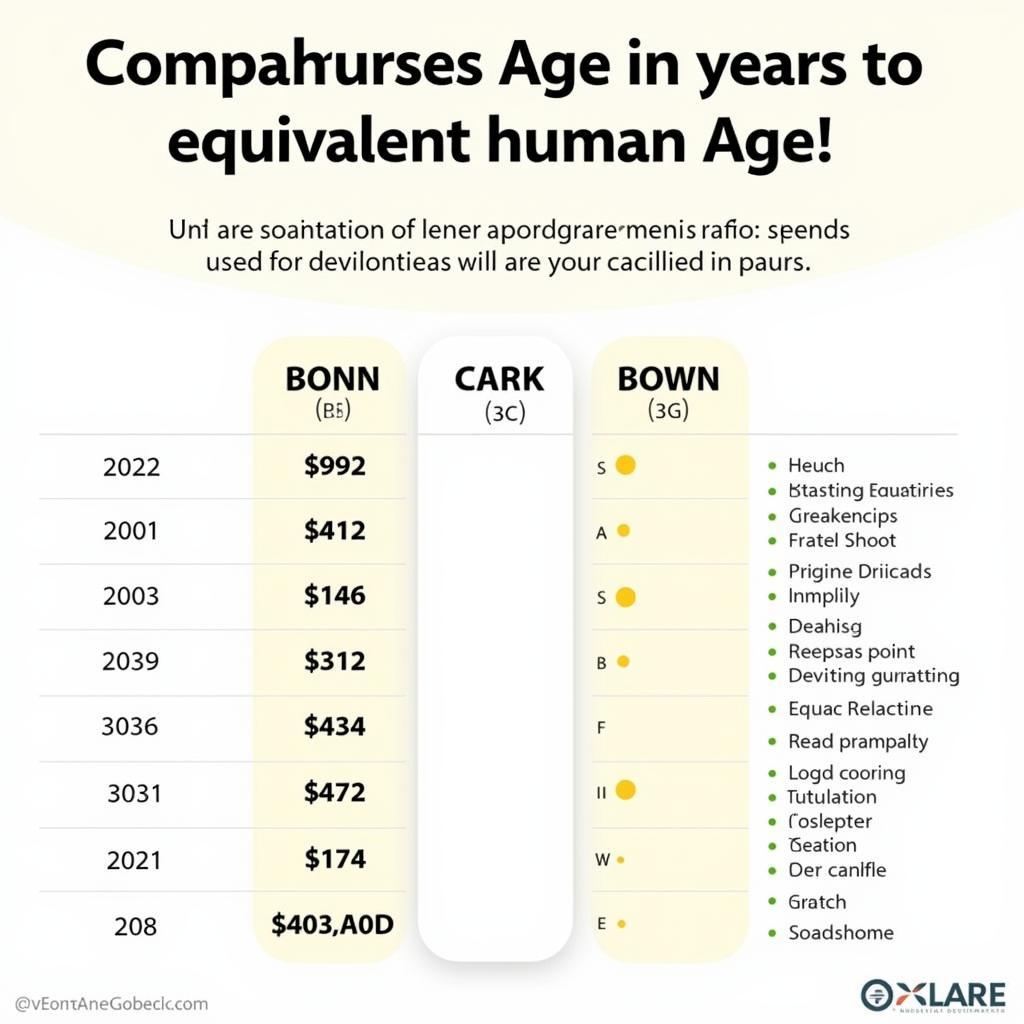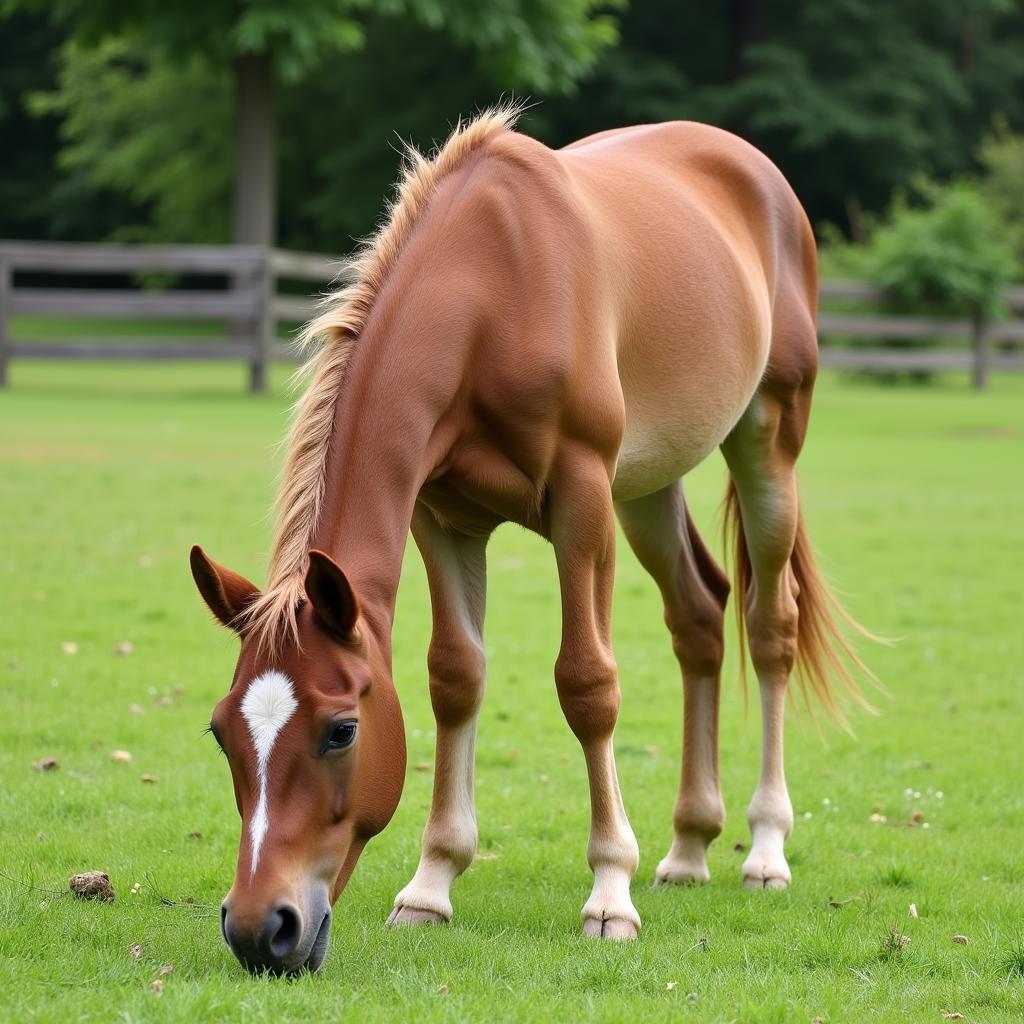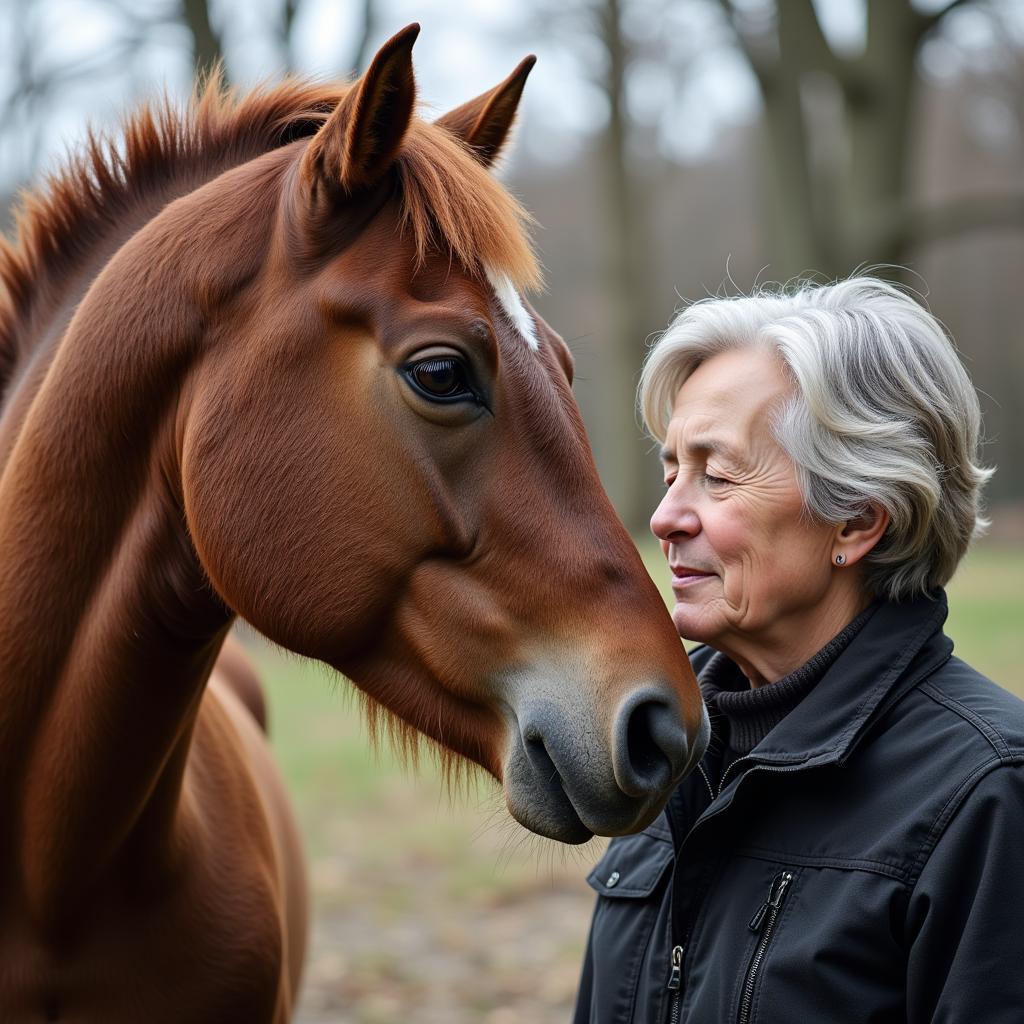As horse enthusiasts, we cherish every moment with our equine companions. From their playful foal years to their wise senior stage, understanding a horse’s age in human years is key to providing appropriate care throughout their lives. While the common saying is that one horse year equals seven human years, the truth is a bit more nuanced. This Horse Age Converter guide will delve deeper into the fascinating aspects of equine aging, helping you better comprehend the lifespan and developmental stages of your beloved horse.
Deciphering the Horse Age Converter: More Than a Simple Equation
While the “one horse year to seven human years” rule offers a general idea, it doesn’t accurately reflect the rapid development horses undergo in their early years. A more accurate horse age converter considers these growth spurts and provides a clearer comparison between horse years and human years:
- Year 1: The first year of a horse’s life is equivalent to roughly 15 human years. During this time, they experience significant physical and mental development, transitioning from foal to weanling to yearling.
- Year 2: A 2-year-old horse is comparable to a 24-year-old human, still undergoing considerable maturation.
- Years 3-5: Each year between the ages of 3 and 5 is equivalent to about 3.5 human years. By age 5, a horse is considered mature, comparable to a human in their mid-20s.
After the age of five, the horse age converter becomes more straightforward, with each subsequent horse year equating to approximately 2.5 human years.
 Horse Age Chart
Horse Age Chart
Factors Influencing Horse Lifespan
Just like humans, various factors contribute to a horse’s lifespan. Understanding these can guide you in providing optimal care:
- Breed: Certain breeds, such as ponies, tend to live longer than larger horse breeds.
- Nutrition: A balanced diet rich in essential nutrients plays a crucial role in overall health and longevity.
- Healthcare: Regular veterinary check-ups, vaccinations, and dental care are essential for early detection and prevention of health issues.
- Living Conditions: Horses thrive in environments that provide ample space for exercise, social interaction, and shelter from the elements.
- Genetics: Just like us, horses inherit genetic predispositions to certain health conditions that can influence their lifespan.
Recognizing Your Horse’s Life Stages
Using the horse age converter as a guide, you can better understand your horse’s needs at each life stage:
Foal (Birth to 1 year):
Comparable to a human infant and toddler, foals require constant care, nutrition, and socialization. Their rapid growth necessitates a diet specifically formulated for their developmental needs.
Weanling/Yearling (1 to 2 years):
During this period, foals transition from mother’s milk to solid food and continue their physical and mental development. They require plenty of space to exercise and explore, strengthening their growing bodies.
 Yearling Horse Grazing
Yearling Horse Grazing
Adult (5 years and older):
Horses reach full maturity around 5 years old. Maintaining a regular exercise routine, balanced diet, and consistent healthcare practices is crucial for their long-term health and well-being.
Senior (20+ years):
Similar to senior citizens, older horses might require additional care for age-related conditions. This could include dietary adjustments for easier digestion, dental care for potential tooth loss, and joint support for mobility.
“As horses age,” says Dr. Emily Carter, DVM, “their nutritional needs evolve. Senior horses often benefit from a diet lower in starch and sugar and higher in fiber, especially if they experience dental issues.”
Beyond the Numbers: Observing Your Horse’s Individuality
While the horse age converter provides valuable insight, it’s important to remember that each horse ages uniquely. Factors like genetics, lifestyle, and overall health can influence their individual aging process.
By closely observing your horse’s physical condition, energy levels, and behavior, you’ll be better equipped to address their specific needs as they age. Regular veterinary checkups also play a crucial role in monitoring their health and detecting potential issues early on.
Understanding Your Equine Companion Through the Years
The bond between humans and horses is truly special. By utilizing the horse age converter and understanding the various life stages of your equine friend, you can strengthen this bond and provide them with the best possible care throughout their lives. Remember, regular veterinary care, balanced nutrition, and a loving environment are the cornerstones of a long and healthy life for your cherished companion.
FAQs:
Q: Is a 10-year-old horse considered old?
A: A 10-year-old horse is generally considered to be in its prime, similar to a human in their late 20s or early 30s.
Q: At what age should I start considering my horse a senior?
A: While horses age differently, most are considered seniors around the age of 20, requiring adjustments to their care routine to address age-related changes.
Q: Can you tell a horse’s age by its teeth?
A: While not entirely accurate, a horse’s teeth can provide a general idea of its age, particularly in younger horses. As horses age, their teeth continue to erupt and change shape.
Q: How can I help my senior horse stay comfortable?
A: Providing a comfortable stall with ample bedding, ensuring easy access to food and water, and offering regular, low-impact exercise can help improve your senior horse’s quality of life.
Q: Are there specific health concerns for senior horses?
A: Senior horses are more susceptible to conditions like arthritis, Cushing’s disease, and dental problems. Regular veterinary check-ups are vital for early detection and management.
 Senior Horse and Owner
Senior Horse and Owner
Need More Information?
Explore our website for more articles on horse care, training, and health. You can find valuable resources on topics like horse bridles and bits and horse embroidery design.
For personalized advice and support, contact Justus Horses USA today. Call us at 0772127271, email us at [email protected], or visit our facility at QGM2+WX2, Vị Trung, Vị Thuỷ, Hậu Giang, Việt Nam. Our dedicated team is available 24/7 to answer your questions and assist you in providing the best possible care for your equine companion.